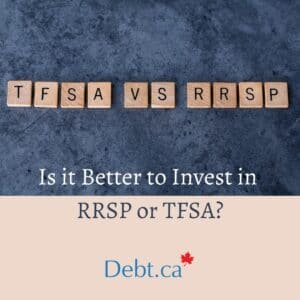Is it possible?
For decades, homeownership has traditionally been associated with financial stability and security. Even today, it is a goal many aspire to, although it is increasingly out of reach for a growing number. Not just that, homeownership has been a key part of retirement planning. In recent years, the cost of owning a home has not kept pace with wage growth. Mortgage rates are difficult to qualify for. This is a natural cause of worry towards financial planning and retirement, raising questions like, “Is it possible to be financially stable without owning a home?” or “How can I build financial stability if I can’t afford to buy a home?”
The good news is, it’s definitely possible to be financially stable without owning a home. Here are a few things you can do to build financial security, or even be financially independent someday!
Emergency fund
Prioritize building an emergency fund before anything else. Your ideal goal should be to save up between three to six months’ worth of expenses. This may take some time, depending on where you’re starting from. Even $500 is a good start for an emergency fund and would set you ahead of 26% of Canadians.
So take your time, and build up to six months of living expenses over time before building any other savings. Invest these funds in a HISA (High Interest Savings Account). Make sure your savings are liquid and easily accessible. You should be able to quickly and easily access it in the case of an emergency, so market-linked index funds or GICs with lock-in periods are unlikely to be a good fit.
Become debt free
While you build your emergency fund over time, you can also start looking at ways to become debt-free. If you’re dealing with credit card debt, keep an eye on your APR and make sure it seems manageable to you. If not, you can switch to a card with low or no introductory APR. Along these lines, you can also research possible solutions for whatever type of debt you are dealing with. Look into debt management plans, debt consolidation, credit counselling, or consumer proposals, depending on the severity of the situation and what your priorities and non-negotiables are.
You can start paying off debt while building your emergency fund. There are many methods like the avalanche method or snowball method that you can follow to tackle debt on your own. Credit counselling agencies can provide valuable advice that can help you choose the right approach in your journey toward being debt-free.
Retirement savings
Building up your long-term retirement savings accounts is an easy win. There are two ways to go about doing this. They’re both long-term options that will keep making you money via interest in the background once you set it up. Over the years, the funds will add up and be ready for you during retirement.
Employer-sponsored plans
First, max out your Registered Retirement Savings Plan (RRSP), and take advantage of employer matching programs. For example, if you can get a 3% matching, that means if you put in 3%, your employer does too. If you don’t put in money, neither does your employer! Contribute up to the maximum employer match you can get, otherwise you’re leaving money on the table. In this example, if you put in 2%, they’ll match 2%, but if you put in 6%, their contribution caps out at 3% still. So, you don’t need to put extra unless you can afford it or prefer it to other accounts.
Tax-advantaged accounts
Accounts like Tax-Free Savings Accounts (TFSAs) allow tax-free growth and withdrawals. Know that you can contribute to a First Home Savings Account (FHSA) even if you don’t want to buy a home – it may allow you to further maximize your RRSP contribution room. You can contribute up to $8,000 annually to a FHSA, which has a lifetime limit of $40,000. If you don’t use the funds in your FHSA to buy a home within 15 years of first opening it (or by the time you turn 71, whichever is first), you have to close the account. However, when you do so, you can transfer the funds to your RRSP. This does not impact your existing available RRSP contribution room.
Disciplined savings
Another important point is that you will have to save consistently on your own since you won’t have any mortgage payments that essentially save for you. Consider saving the difference between your actual rent and potential mortgage payments for a similar space. Take that difference and invest. Even if the difference might be small (as it is likely to be in metro cities), every bit counts!
Save on housing costs
Renting provides greater flexibility than owning a home, in terms of what kind of space is available to you. You have the freedom to rent the kind of space you need, and you can change that if your needs change.
Remember, you don’t have to rent (or even buy) a place that maxes out what your shelter budget can afford. If you need less, you don’t need to spend more on a bigger space just because. You can put it in savings instead, and watch that money grow. If you do need a bigger space in the future, the money you’ve saved will add more flexibility to supporting those choices.
Compare full costs
If you’re trying to decide whether renting or homeownership would make more sense, consider the total amounts for each, not just the monthly costs. Apart from mortgage costs, there are many additional costs associated with homeownership. These costs include property taxes, home insurance, maintenance and repair, condo fees, legal fees, broker’s commission, land transfer taxes, and inspections before purchase. These costs add up quickly. All of them should be factored into calculations to consider which is more financially advantageous.
Invest
After contributing to your savings accounts and retirement accounts, you can start investing. Here, you need to consider your risk tolerance, risk appetite, and time horizon. If you have a long-term horizon, you may be able to tolerate higher-risk investments, which also have the potential for higher rewards.
If you’re looking at a shorter time frame or have a lower risk appetite in general, you can be more conservative in your choice of investments. In this case, you may prefer bonds, HISAs (High Interest Savings Accounts), GIC (Guaranteed Investment Certificates), etc.
In either case, it is advisable to diversify your portfolio. Index funds and ETFs that track broad market indices can be good low-risk investments. Whether short-term or long-term, these types of funds tend to perform relatively well. Here’s something to consider, over the past decade, the S&P 500 Index has outperformed Canadian real estate, with a 13.75% annualized return compared to real estate’s 6.75%. That’s good news for those who rent and focus more on their investments.
Invest in your career growth
Investing in your career can increase your earning potential and consequently, savings rate. You can study more in your field of interest, go back to school, take a professional development course, or do anything else that can give you a career boost. While it may cost a little (or a lot, depending on what you choose), take a mindful decision and see if it’s worth it in the long run. It might pay for itself sooner than you expected.
When you do start seeing career growth, make sure you’re still focused on managing your finances well. Stay mindful of lifestyle inflation. Yes, you can use that money to do things that make you happy but don’t forget your goal of being financially stable. An unexpected benefit here of not owning a home is that it is easier to move for different opportunities. Renting provides more flexibility to get up and move elsewhere if it can provide a better life for you and your loved ones.
Things to consider
Some other things to consider while aiming to be financially stable:
Insurance
Whether you are planning to rent or own your home, it is important to be insured. Insurance supports your financial stability, as it can mitigate the financial impact caused when life throws you a curveball. Whether it is homeowner’s insurance or renter’s insurance, it helps protect your home and belongings. Personal insurance is also beneficial to protect and support your family’s interests, especially if you’re the sole income earner.
Trusts
In a trust, a “Settlor” transfers property and assets to a “Trustee” who manages the assets, and the “Beneficiary” of the trust benefits from it. This can help protect wealth by:
- Helping optimize taxation
- Protecting assets from creditors or legal claims
- Increasing privacy
- Supporting asset transfer without having to go through the lengthy process of estate planning or probate fees,
- Providing properly administered wealth management to preserve the assets and property.
If relevant to your needs, consider setting up a trust to ensure you and your family are taken care of. Once you’re financially stable, it’s important to maintain it. A trust could help make sure you and yours stay financially secure and can provide a secure place for you to hold your funds.
FIRE movement
In the last few years, the FIRE movement has started to gain mainstream attention. It stands for Financial Independence, Retire Early. This movement has gained traction amongst people who plan to save up what they need to be financially independent and retire early. The amounts and goals are individual and depend on your personal priorities and lifestyle choices. Participants build a corpus calculated based on their existing expenses. Once they reach the invested goal amount required to be financially independent, they can then live off the passive income they receive from it. They usually stick to a SWR (safe withdrawal rate) of 4% to maintain their corpus and ensure that they’ll continue to earn as much as they require to maintain their lifestyle.
Key takeaways
It is certainly possible to build wealth, plan for retirement, and achieve financial stability without depending on homeownership. The key is to be disciplined with savings and choose your investments wisely.
- Invest in yourself and your career growth.
- Be mindful of lifestyle inflation and make sure you’re not spending too much on things that don’t serve you: instead, invest the surplus. You will see progress quicker in your savings.
- Compare the costs of renting and homeownership and see what makes more sense for you, both financially and in terms of your lifestyle and future goals.
- Prioritize building an emergency fund and becoming debt-free.
These practices provide a good path to being financially stable, which is invaluable for peace of mind too.
If you’re currently dealing with debt, you can contact one of our trained credit counsellors for advice – they can help you figure out which debt relief strategy could be the right fit for your specific situation.










